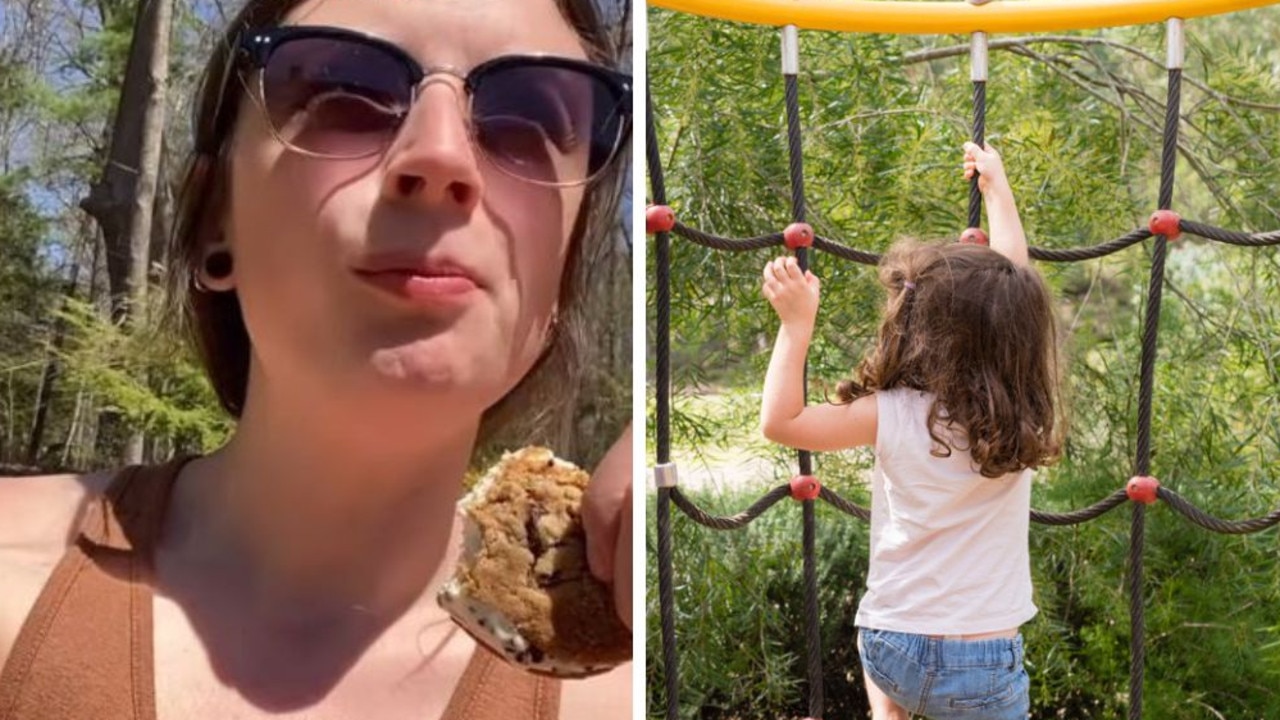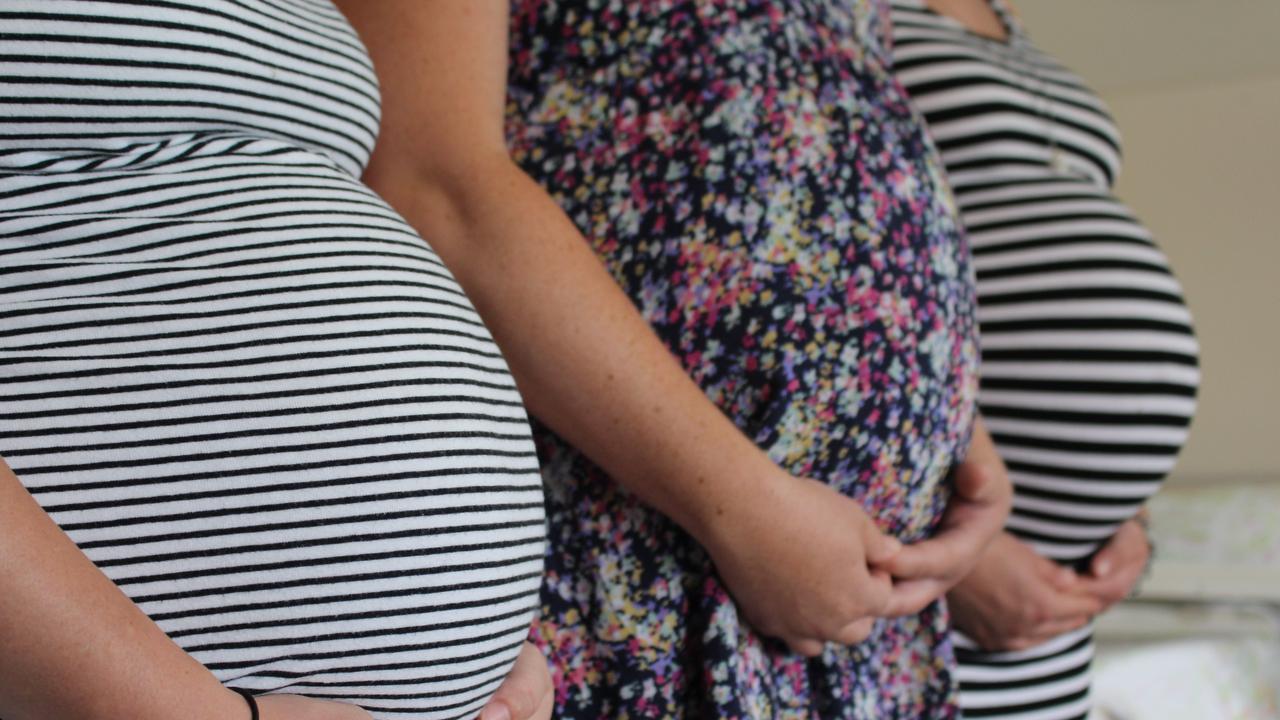Australian kids now need ‘Playlight Savings’ whether you live with daylight savings or not
Screen-addicted kids across Australia must adopt “playlight savings” for the sake of their health and wellbeing. VOTE, HAVE YOUR SAY
Kids
Don't miss out on the headlines from Kids. Followed categories will be added to My News.
Exclusive: Australian families are being encouraged to adopt “playlight savings” — whether they have daylight savings or not — and make the most of the extra sunlight hours to improve their health.
New research obtained by News Corp after being conducted on behalf of Golden Circle has found one in three kids do not spend time outdoors more than twice a week.
They spend just 5.5 hours outdoors each week on average, but spend 9.5 hours watching screens including TVs, smartphones, PCs and tablets instead.
Overall, 71 per cent of Australian kids spend less than an hour a day outdoors, and one in two families do not spend time outdoors with their kids more than twice a week.
Kids in South Australia have the most screen time, including watching TV, being on the computer or playing video games with an average of 17.4 hours per week, followed by Queensland (14.8 hours per week), NSW (13.4 hours per week), Victoria (13 hours per week) and Western Australia (10.3 hours per week).
South Australian parents say the biggest barrier stopping their kids spending time outdoors is a lack of interest.
All other states say lack of time is what stops their kids spending time outdoors.
Parents enjoy spending time with their kids at local parks (78 per cent), in their backyard (63 per cent) or at the beach (63 per cent).
When kids are spending time outdoors, going to a park is most popular (67 per cent), followed by a trip to the beach (55 per cent) and free play such as playing with a pet (53 per cent).
The findings come as Australian Institute of Health and Welfare figures stated 25 per cent of kids and adolescents aged 2—17 and 67 per cent of adults were overweight or obese in 2017—18.

Family psychologist Dr Justin Coulson told News Corp spending time outdoors was critical for families to stay connected.
He said the research findings mirror all academic research he has seen, showing parents do not spend enough time with their kids outside.
“There’s no doubt technology is interfering with our opportunities to be together and celebrate playlight savings,” he said.
“The data that really blew me away was one in three kids don’t spend time outdoors more than twice a week, that’s an enormous percentage of kids not getting the fuel their bodies, minds and souls need.”
Dr Coulson said every parent he speaks to wants more quality time with their kids, but even without daylight savings, it can still be done.
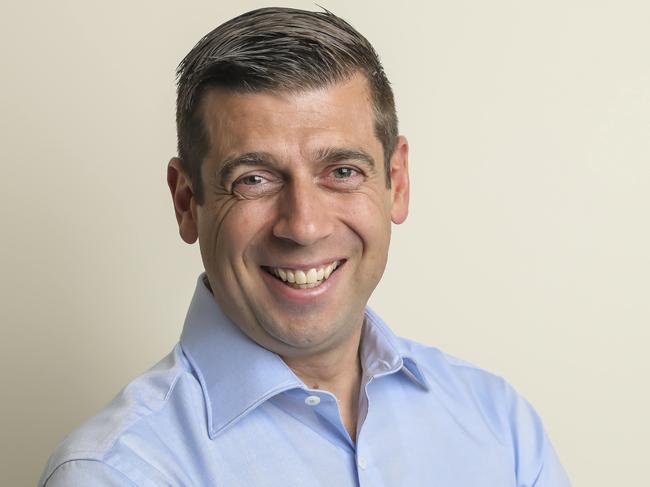
Daylight savings is in every state except Queensland, the Northern Territory and WA.
“Regardless of which state you live in, we’ve got more hours of sunlight everyday to be more intentional and spend more time with our families,” he said.
Dr Ben Bullock, a lecturer from Swinburne University’s Department of Psychological Sciences and the Centre for Mental Health, told News Corp the data was concerning but not surprising.
“The light helps keep our circadian rhythms stable, which helps with sleep. If we’re getting quality sleep, about seven to nine hours a night, that boosts our concentration and mood significantly,” he said.
Mr Bullock extra time in the sun raised vitamin D levels, which is important for strong bones, muscles and overall health.
‘WE MISS DAYLIGHT SAVINGS’
Natasha D’Arcy relocated to Brisbane from Canberra nearly 10 years ago, where she and her husband Cameron started a family.
With two young boys — Wilbur, 6, and Victor, 2 — and a third child on the way, the 35-year-old wishes daylight savings had followed her.
Ms D’Arcy works from home, and it’s often not until 6pm that her husband returns from work. She said the extra hour of daylight would help her family better connect during the week.
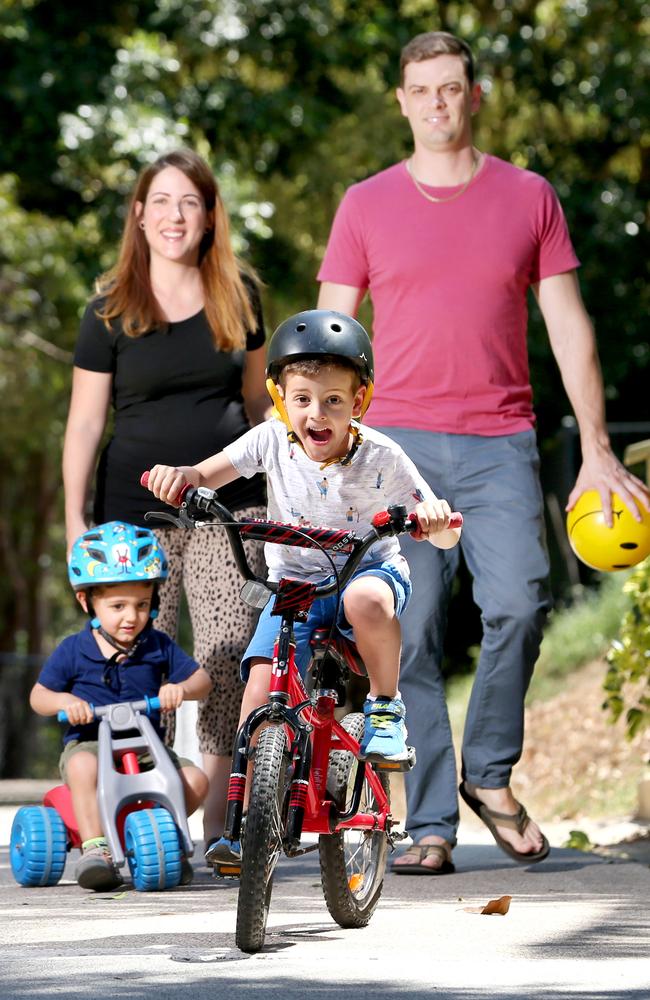
“By the time my husband arrives home it’s not long until it’s dark,” Ms D’Arcy said.
“The extra hour would be great because it would mean we could go for a walk down, or head down to the park.
“When we’re doing those activities that we have great conversation and family moments.”
The couples do their best to limit screen time for their kids on the weekend.
“There are huge benefits when they’re active. It’s great for their mental health, it helps take the edge off and they eat and sleep better,” she said.
‘IT’S GREAT TO HAVE THE EXTRA TIME’
Elena Stepanova, from Forestville, said her family looks forward to daylight savings every year.
The Australian outdoor lifestyle lured the 36-year-old and her husband Dimitri from Europe eight years ago. With three kids — Anton, 12, Maya, 10, Yana, 6 — they try to spend as much time outdoors as possible.
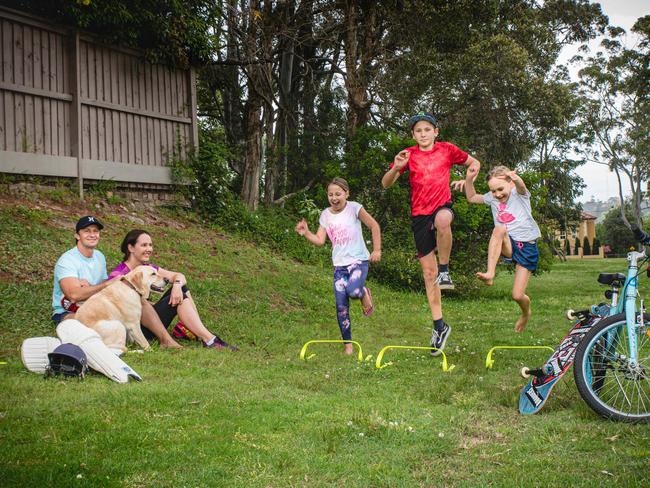
“We’re a very active family, and we try to spend as much time outdoors as possible,” she said.
“It’s really great to have the extra time. It means we can take the dog for a walk together, go down to the park after work, or even the beach.”
“We also have a rule at home where if it’s light outside, there’s no TV. If there’s sun and it’s good weather, the kids have to go outdoors.”
Ms Stepanova said she could see the difference in her children’s wellbeing if they spent more time outside.
“Their mood is better, they sleep better; it’s just clear they are happier and healthier,” she said.
“They’re like zombies if they spend too long in front of the screen. They get grumpy and super frustrated.”

PLAYLIGHT SAVINGS TIPS FOR TIME-POOR FAMILIES:
1 — Commit to one day a week where you spend an extra hour outdoors as a family
2 — Get the kids involved in deciding what the family does so you get buy-in with them and make it something to look forward to eg Magic Monday, Fantastic Friday
3 — Decide on a simple activity eg dinner near the beach, a walk or kicking a ball in the park
4 — Once you get into the routine of the extra hour, look at other ways you can spend more time outdoors
5 — Make the effort to be richly rewarded with more quality time
Source: Dr Justin Coulson

